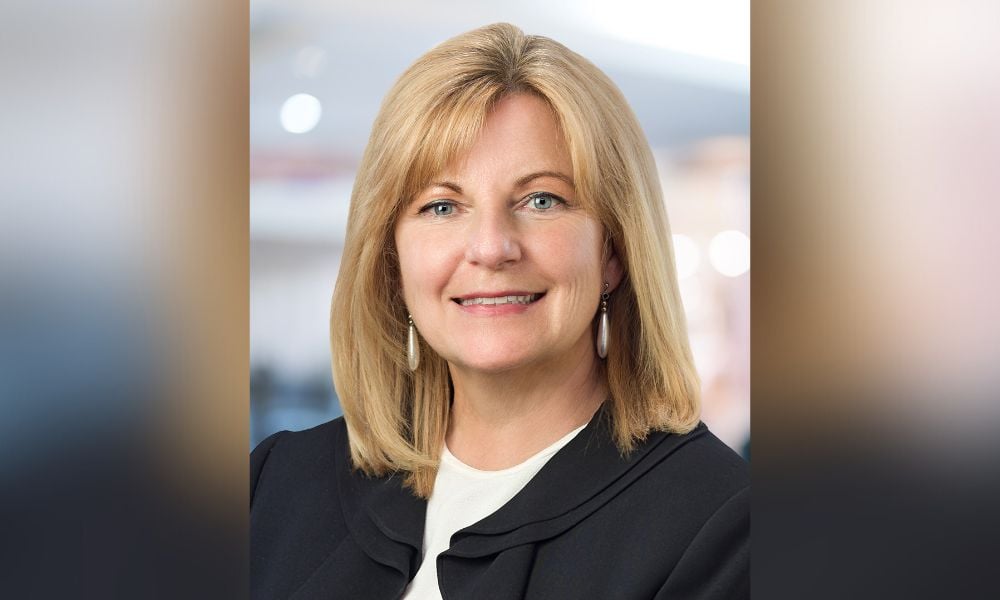Pro Bono initiatives are not just for law firm lawyers — corporate counsel are increasingly getting involved and offering their own unique skill sets
It was a good question, a very Canadian question, eagerly asked by a grade-eight student. “If I use the logo of my favourite hockey team on my website, will it violate their copyright?” he queried, showing a level of sophistication about a complex subject that would stump many a grownup.
For the team of in-house counsel from Hewlett-Packard (Canada) Co. (HP) speaking to the assembly of 75 Peel District School Board students in Mississauga, Ont., it was exactly the kind of inquisitiveness for which they had prepared. Says Jamie Telfer, counsel at HP in Mississauga, who spearheaded the program as pro bono captain for the company in Canada, “the students were aware enough to ask about the difference between copyright and trade-mark, what happens if you pull a picture from Google images to use for a school project, and spent a lot of time asking about privacy and cyberbullying.”
Modelled after a similar program launched by HP in Germany, Telfer approached Pro Bono Law Ontario (PBLO) about adapting the online awareness program for middle-school students in Ontario. For Lynn Burns, Executive Director at PBLO in Toronto, Telfer’s query was not only welcome, but timely.
In Ontario there are a great many individual in-house counsel undertaking pro bono work, for example in the Charitable Law Program assisting Ontario’s charities and non-profits with business law issues such as employment matters and commercial contracts, and Law Help Ontario, a program that provides summary advice to self-represented litigants in Small Claims and Superior Court. Yet there’s a real dearth of organized law department pro bono initiatives.
In 2010, Sanjeev Dhawan, then President of the Association of Corporate Counsel Ontario (ACC Ontario), approached PBLO, says Burns, with the request to develop a signature project for its chapter. The chapter enrolled in PBLO’s Charitable Law Program. Later, in June 2012, PBLO and ACC Ontario launched the Adoptions Project, which supports family formation for children aging out of the foster care system and the families who cared for them, often since infancy or early childhood. Teams of lawyers from different corporations work with the parents and the children to complete formal adoptions (one side advises the parents, while the other advises the children). Burns says PBLO provides training, mentorships and case coordination to help volunteers who are working a little outside their comfort zone.
As exciting as this initiative is, PBLO is working with only a handful of in-house legal departments. Further, calls from law departments proposing a new program, such as from Hewlett-Packard’s Telfer, are rare. Most often, in-house counsel calling to talk about initiatives come from two streams: lawyers who performed pro bono when they were at law firms prior to going in-house and/or from law departments in global or large organizations with established pro bono policies and mandates. Burns says PBLO has set 2015 as the year to put a real push on internally developing opportunities that it can offer to law departments.
In the US, there’s a growing momentum among law departments to create formal law department pro bono initiatives. Esther Lardent, President and Chief Executive Officer of the Washington, DC-based Pro Bono Institute, says “pro bono has been strongly supported and visible in the US, although for a not-so-great reason. It’s because proportionally the US spends so much less of its public funds on legal aid than many other countries.”
As to organized law department initiatives, Lardent has seen enormous change and development over the past 15 years since the Pro Bono Institute was approached by the Association of Corporate Counsel (ACC) with the idea of co-sponsoring a corporate counsel law department pro bono program.
“In 2000, there were three companies in the US, and I don’t think we were only aware of three companies, I think there really were only three companies that had formal pro bono programs,” she recalls. Today, with the ACC partnership, the Corporate Pro Bono project has more than 133 signatories to its Corporate Pro Bono Challenge (CPBO). “The Challenge is an aspirational standard whose most notable element is that signatories commit to involving at least 50 per cent of their legal staff in pro bono annually,” says Lardent. Yet she regards the number of signatories “to some degree as the tip of the iceberg as we’ve worked with far more companies who are not quite ready to sign on to a public pledge.”
Lardent believes many of the same factors that drive pro bono initiatives in corporate counsel departments in the US are present in Canada. “Many Canadian corporate counsel come from law firms and we’ve seen certainly over the last 10 years or so in Canada that pro bono has increasingly become part of the culture in large firms. When people move in-house they miss doing pro bono work. And of course you also have Pro Bono Students Canada, so there’s a whole generation coming into the profession who have a background in pro bono work.”
In addition, says Lardent, most corporations are increasing their corporate social responsibility (CSR) initiatives, focusing on being a resource to the community in which their people live and work. “So law department pro bono initiatives really dovetail well with the growth in corporations’ CSR activities, as well as mirroring what’s happening in the legal profession.”
At Royal Bank of Canada (RBC), which is a signatory of the CPBO, the many initiatives being undertaken by the law department are indeed “reported as part of the corporation’s umbrella corporate social responsibility mandate,” says David Allgood, Executive Vice-president and General Counsel at Royal Bank of Canada in Toronto, and a past president of the ACC. As to Canadian law department pro bono initiatives, Allgood says “they tend to be companies which have global programs or have strong pro bono programs in the US.” RBC, for example, has lawyers active in pro bono in US centres such as New York, Minneapolis and Denver.
RBC’s programs include acting as duty counsel at Small Claims Court and Superior Court; the Unaccompanied Minors Project, in which lawyers act as designated representatives before the Canadian Immigration Refugee Board to assist minors in Canada making refugee claims; Older Youth Adoption Project, whereby in-house counsel act for older youth or the prospective adoptive family; Money Matters (Wellspring), which assists people living with cancer who face various employment, human rights and insurance challenges, and Kids in Need of Defense (KIND), a US-based program similar to the Unaccompanied Minors Program.
In 2015, the RBC law group would like to expand the number and diversity of its pro bono initiatives in the UK and some other jurisdictions, adds Alison Burton, Assistant General Counsel at RBC in Toronto and Chair of the Pro Bono Committee. In fiscal 2013, RBC’s law department docketed just under 900 hours, rising to 1,022 in 2014, with more than 42 law group members participating. Still, says Burton, “we suspect the participation and hours are even more than what we report, as we no longer formally docket, so tracking contributions and time is a bit challenging.”
PBLO’s Burns is of the view that what’s needed in Canada to really kickstart pro bono in law departments is providing tailored programs. Scott Kirkpatrick, General Counsel and Vice-President of Coca-Cola Refreshments Canada, Coca-Cola Ltd and The Minute Maid Co. Canada in Toronto, had enjoyed the experience of volunteering in various levels of court for PBLO when he was a lawyer at Gowling Lafleur Henderson LLP prior to joining Coca-Cola in 2011.
“When we looked at the possibility of doing pro bono, one of our goals as a law department was to find a specific project that could include everyone, not just the lawyers, but also our paralegals and office administrative staff as they indicated they wanted to participate in any pro bono initiative we would undertake,” says Kirkpatrick.
In 2013, Kirkpatrick reached out to PBLO’s Burns, who said one of the projects they had been looking at for long time, and similar to what she had seen in the US, was to put together some frequently asked questions and some high-level legal educational materials for various charities. “PBLO identified the need and it really appealed to us because by lending assistance to the United Way or other umbrella organizations that were already set up to help the community, the reach would be far more than what we could do on our own,” he says.
Teamed up with lawyers and paralegals from Gowlings, who, says Kirkpatrick, could provide legal expertise, as well as clerical assistance, such as binding and printing, the lawyers have put together materials for three areas of law identified by PBLO: employment law, “especially in charitable organizations often the line between what is a contract worker and employee is blurred, as example,” IP law, “such as how to protect your trade-marks, how the marketing that you do in a charitable organization is protected, and Contracts Law 101,” he says.
So far the materials are online, “but we are also working with PBLO to determine what next steps there may be as far as educational opportunities,” adds Kirkpatrick, “perhaps hosting a seminar or something along those lines where we present these materials to any interested organizations.”
In fact, says Burns, educational pro bono is an area PBLO would like to target.
“Educational pro bono may be a little bit different than what you would consider to be traditional legal services where you’re giving somebody legal advice on a particular legal matter,” says HP’s Telfer, referring to his law department’s middle-school online awareness pro bono initiative. “This is more general legal education, and it’s for a group that you know likely isn’t otherwise going to get this information, so it’s a great opportunity to perform legal services in a way that you wouldn’t otherwise generally do.”
In 2014, in another law department/law firm pro bono partnership, in-house counsel from Imperial Oil Limited in Calgary and lawyers from law firm Davis LLP’s Calgary office (Davis recently combined with DLA Piper LLP) began participating together in Pro Bono Law Alberta’s Civil Claims Duty Counsel Program. The partnership is structured so that each client meets with two lawyers, one from Imperial Oil and one from Davis.
According to Lara Pella, Assistant General Counsel and Corporate Secretary at Imperial Oil Limited, the majority of Calgary corporate counsel participate in the Civil Claims Duty Counsel Program. “I can’t begin to tell you how much our participation has increased the morale of our legal group,” she says. “People just feel this is such a great contribution they’re making and it’s part of their work life here at Imperial. And because they do their shifts in the afternoon during work hours they appreciate that we are giving them the ability to be able to make these contributions.”
Prior to agreeing to participate in the pro bono program with Pro Bono Law Alberta, Bill Hartnett, VP and GC at Imperial Oil, wrote an email to the law department to determine whether there was sufficient interest. In addition to laying out the parameters of the program, under which volunteer lawyers meet with individuals and provide summary legal advice, procedural information, and assistance with completing court forms, Hartnett says “one of the things I mentioned was that not being able to do legal aid-type work was what I missed most after leaving private practice.”
Back in the early 1990s, Hartnett, who had just moved from Imperial Oil’s Toronto office to its Calgary office, led an initiative to establish Volunteer Lawyer Services (VLS), a joint undertaking of the Association of General Counsel of Alberta, the Law Society of Alberta, the Canadian Bar Association, Alberta and the United Way. “The VLS was a success with corporate counsel since the Law Society of Alberta made arrangements for professional liability insurance coverage for corporate counsel providing advice through the program,” he recalls.
But as Hartnett says, “there was no professional liability insurance coverage unless an in-house lawyer bought it,” he recalls. “Most corporate employers do not require their lawyers to buy such insurance and few lawyers would purchase coverage just for their pro bono work since it’s expensive.”
Insurance coverage is a concern of law departments. While it can differ in various parts of Canada, in Alberta, says Kendall Moholitny, Deputy Executive Director at Pro Bono Law Alberta (PBLA) in Calgary, “when involving in-house counsel in pro bono delivery, PBLA is cognizant of insurance issues. Insurance coverage extends to in-house counsel for pro bono legal services rendered through authorized pro bono providers listed in the Law Society Rules.”
Burton at RBC says one of the questions from other corporations about RBC’s pro bono program is what to do about insurance. “Our answer is that in Ontario if you partner with the program that is registered with Pro Bono Law Ontario, you are covered up to $250,000. In addition, we take the position that, if you are doing pro bono work that has been approved by our Pro Bono Committee, you are then working at the request of RBC.”
Still, says Burton, while this regime works in Canada, it doesn’t work in the US. “The reason we are able to do this in Canada is that there hasn’t been a lot of litigation where people are suing for pro bono work. Insurance issues in the US work differently. As such, our law group members partner with law firms on every initiative.”
Another concern from both in-house counsel and law firm lawyers is that many pro bono programs seem to be litigation based. As a result, some in-house counsel, particularly those with little litigation experience, or whose days in court were some time ago, are reticent to volunteer for court-based programs.
Yet Heather Treacy, Managing Partner of Davis’s Calgary office, who initially hears the same concerns from solicitors in the firm, says the Imperial Oil in-house counsel “bring a different and fresh perspective, especially since they have a wealth of experience dealing with contract issues and for civil claims duty counsel many of the issues that arise are contractual in nature. So there’s a huge advantage to the unrepresented civil litigants who are receiving summary legal advice from two very knowledgeable lawyers, but who might approach the problem slightly differently.”
“All lawyers have the skills to identify issues and help clients understand contracts and other legal documents. With support and training, in-house counsel can provide pro bono services in a variety of areas of law,” adds PBLA’s Moholitny. She suggests that with a significant number of head offices located in Alberta and more counsel moving in-house, “it is important to engage in-house counsel to do pro bono. The need for pro bono service is growing. In-house counsel can play a valuable role in ensuring that need is met.”
Shane D’Souza, a McCarthy Tétrault LLP associate in Toronto, manages the day-to-day operations of the Unaccompanied Minors Project started by partner Christine Lonsdale in 2005. In 2011, the RBC Law Department came onboard, as a way, says D’Souza, to increase the program’s capacity to work on these cases and also “to partner on a pro bono opportunity that both organizations felt passionately about.”
The first impression to a project such as this, from both law firm lawyers and in-house, could well be akin to “but I don’t have immigration experience.” But, says D’Souza, “whether you’re in tax, litigation, real estate or in-house, as examples, it doesn’t matter. What you need is good judgment, an understanding of the minor’s interests and a basic understanding of the refugee protection process in Canada. It’s very analogous to in-house counsel’s position where as long as you understand what your client wants and needs, you can give directions to act in their best interest.”
While organized in-house pro bono programs have certainly been flying under the radar for many law departments in Canada, there’s clearly the will to highlight those who have taken the initiative.
In 2013, the Canadian Corporate Counsel Association (CCCA) created the Community Builder Award “because the value of in-house pro bono services wasn’t being recognized,” says Lawna Hurl, Senior Legal Counsel at Niska Gas Storage in Calgary and Chair of the CCCA’s National Pro Bono Committee. “Many in-house counsel are using their skill set to help individuals and not-for-profits with matters ranging from employment to corporate governance to policy review, and the importance of this work should not be understated.”
Hurl says when lawyers first go in-house, “I think there is an assumption that pro bono is off the table as pro bono is often associated with family and criminal matters, but that isn’t the case,” she says. “The CCCA Pro Bono Committee is a national committee created in response to our members coming to us for information on what pro bono opportunities are out there for in-house. Lots of in-house counsel would like to contribute to the community through pro bono work and the CCCA is trying to figure out how best to facilitate that for our members across the country.”
Catherine Lau, Senior Counsel at TELUS Legal Services in Vancouver, is a member of the CCCA’s BC Pro Bono Committee. She sees growing interest among corporate counsel for pro bono work, both as individuals, and perhaps, through law department-wide initiatives. “Pro bono work aligns with the culture at many organizations,” she says. As an example, “giving back to the community is an important part of TELUS’s culture. Consistent with the positive culture and values, many in-house counsel leverage their legal skills to assist their communities. I strongly encourage more in-house lawyers to participate actively in pro bono initiatives.”
Forming a law department pro bono committee is similar to any other decision-making committee, says RBC’s Burton. There’s the need to develop and update policies, agree as to the mission and the goals, and to ensure jurisdictional representation. Not as simple as it may seem at first, she says.
As an example, says Burton, “one of our lawyers here in Toronto wanted to do some pro bono work for a hospital, so as a global committee we needed to determine if this fit into our principles and goals. The Canadians on the committee said, ‘Absolutely, this is a non-profit organization that needs some assistance,’ while the US committee members said, ‘What? What do you mean a hospital is non-profit?’” So while the lawyer who proposed the work did end up sitting on the hospital board and gave them some legal advice, says Burton, “there will be healthy debate, jurisdictional, and philosophical opinions as to what people think merits pro bono work and what doesn’t.”
As well, says HP’s Telfer, watch out for potential conflicts and ensure the pro bono work lines up well with the corporate policies that exist in your organization. “Because our global pro bono program is mature and robust, we have a screening program for every new pro bono opportunity,” he says. “It’s good to build up those kinds of structures within your organization to make sure that you’re keeping in line with the branding and policies, and also looking out for any possible conflicts of interest.”
Amid any concerns among law departments, there’s a common thread, voiced by Hartnett. “In my view, involvement in a corporate pro bono program is first and foremost the right thing to do in terms of giving back to the community for the privilege of being a lawyer, and secondly, it contributes to making a corporate law department an attractive place to work.”
It seems many other Canadian GCs are thinking the same way and looking into organized pro bono initiatives. “In talking with general counsel and chief legal officers in Canada, my sense is that it’s really a matter of time before organized pro bono in law departments in Canada becomes not an anomaly, but more the norm, as it is in the US,” says Pro Bono Institute’s Lardent.





